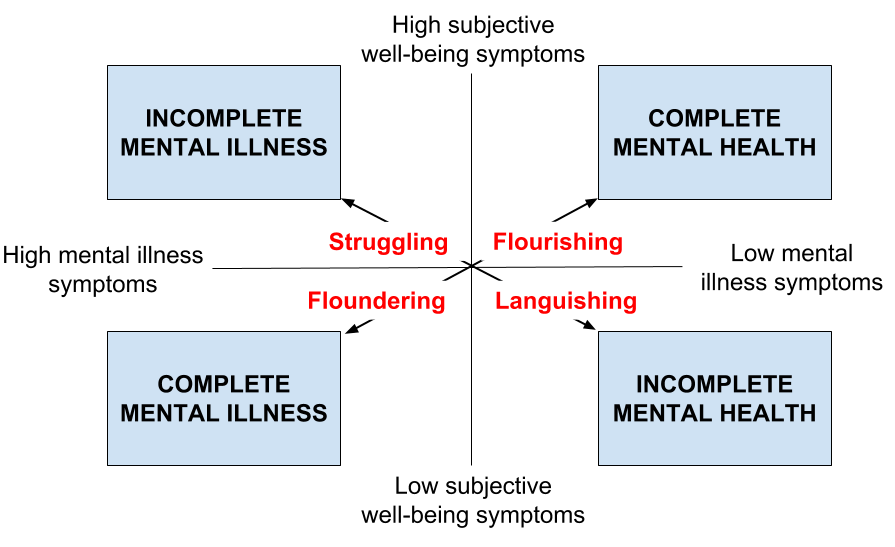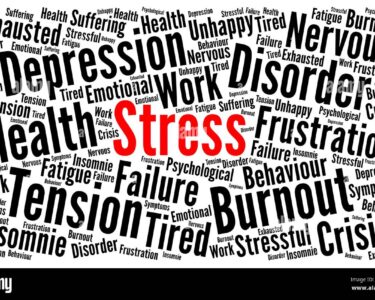From Awareness to Wellness: Navigating the 4 Types of Mental Health
Introduction

In today’s world, where mental health awareness is on the rise, it’s vital to understand the intricacies of mental well-being. This article delves into the four fundamental types of mental health and various mental health disorders, offering valuable insights to help you navigate your journey from awareness to wellness.
The Four Types of Mental Health
1. Emotional Mental Health
Emotional mental health serves as the cornerstone of our overall well-being. It encompasses our capacity to recognize, understand, and manage our emotions effectively, crucial for mood disorders such as depression or bipolar disorder. By exploring techniques for cultivating emotional intelligence and resilience, you can enhance this crucial aspect of your mental health.
2. Psychological Mental Health

This type of mental health revolves around our cognitive processes and is closely tied to anxiety disorders. Dive deep into the realm of thoughts and beliefs, and discover strategies to nurture a healthy psychological mindset, which can alleviate anxiety disorders. By doing so, you can bolster your cognitive well-being.
3. Social Mental Health
Social connections play a pivotal role in our mental well-being. In this section, we’ll delve into the profound impact of relationships on your mental health, including personality disorders. Learn how to build and maintain healthy connections, enhancing your social well-being along the way.
4. Spiritual Mental Health

While often overlooked, spiritual well-being is essential for holistic mental health. Explore the intricate connection between spirituality and mental wellness, regardless of your belief system. Discover how nurturing your spiritual side can contribute significantly to your overall well-being, even for individuals dealing with psychotic disorders such as schizophrenia.
The Journey to Wellness

1. Acknowledge Your Mental Health
Initiating your journey begins with acknowledging the significance of your mental health. Understand that it’s perfectly acceptable not to be okay all the time, and seeking help is a courageous step toward wellness.
2. Self-Awareness
Commence your journey with emotional self-awareness, crucial for recognizing mood disorders. Identify your emotions and their triggers. Self-reflection serves as the initial stride towards achieving emotional well-being.
3. The Power of Mindfulness
Incorporate mindfulness practices into your daily routine. Mindfulness can enhance both your psychological and emotional well-being by fostering a heightened awareness of the present moment, helping manage anxiety disorders.
read more about Exploring Natural Remedies for Anxiety and Stress”
4. Cultivating Healthy Relationships
To nurture positive social mental health, invest time and effort in building meaningful connections, addressing issues related to personality disorders. Engage in relationships that uplift and support you, contributing significantly to your social well-being.
5. Exploring Spirituality

Regardless of your belief system, exploring your spirituality can provide solace, purpose, and a sense of inner peace, thereby contributing to your overall mental health and well-being, even for individuals dealing with psychotic disorders such as schizophrenia.
Conclusion
Navigating the four types of mental health and the associated disorders is an ongoing journey. By acknowledging the importance of emotional, psychological, social, and spiritual well-being, you embark on a path toward comprehensive mental wellness.
FAQs
- Is it possible to improve all four types of mental health simultaneously?
- Absolutely, enhancing one aspect of mental health often positively impacts the others, making it a holistic process.
- How can I assess my current mental health status?
- You can gauge your mental health through self-assessment tools, therapy, and open conversations with trusted individuals.
- Are there specific exercises for enhancing social mental health?
- Engaging in social activities, practicing active listening, and seeking meaningful connections can notably enhance social well-being.
- Can spirituality benefit mental health, even for non-religious individuals?
- Certainly, spirituality is a personal journey and can offer comfort, purpose, and peace to people of all belief systems.
- Where can I access further resources to support my mental wellness journey?
- Explore the “Access Now” link provided below for additional resources and guidance on your path to mental wellness.







 Viesearch - The Human-curated Search Engine
Viesearch - The Human-curated Search Engine
